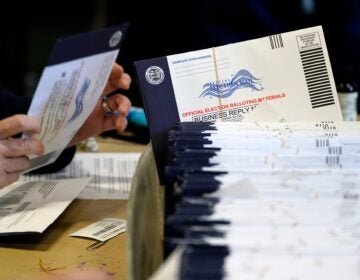Impact of Philly test cheating will be felt for years
One story I’ve worked on this year at WHYY and NewsWorks ranks as the most personally depressing.
The odd thing is, no one died. Well, there was one fatality: my illusions.
A week or so ago my WHYY colleague Ben Herold, teaming with Dale Mezzacappa of the Public School Notebook, provided new detail on the jaw-dropping scope of cheating on standardized state tests in the Philadelphia schools.
Here’s the basic gist of the story: The state has found significant evidence of test cheating at 53 regular public schools in the city, about one in four. The evidence spans three years, many grades, multiple subjects.
The key cheating tip off is this: High frequencies of erasures on test response forms that turn wrong answers to right.
I want you to be very clear on what this implies: It’s not the kids cheating. It’s someone who knows the right answers. It’s the adults in the school, teachers and principals. (Also be clear that erasure analysis catches only one of the forms of adult cheating; others include verbal coaching of kids during tests and so on.)
It’s distressing. It’s disgusting. And it knocks into a cocked hat any and all conclusions that anyone – including, very much, me – had been reaching about the academic yield from all the experimentation and spending in city schools since the city-state reform partnership began a decade ago.
For years, I’ve tried to persuade skeptical taxpayers that test scores in the Philly schools were rising about as impressively in any urban school district. I took that to mean that things like Paul Vallas’ bustle, Ed Rendell’s channeling of state aid, the experimentation with different types of school management, had produced meaningful progress for the kids of Philly.
And don’t get me wrong: Some kids truly have done better thanks to the investments made in them. Thousands of adults have worked hard and well to make city schools better. (And don’t forget, cheating went on in suburban schools and charters, too. But as always, as the state’s biggest system, Philly makes the biggest target.)
Still, this brazen cheating means we can’t know how much progress really has been made, or what approaches really worked best. And we never will.
And that is titanically depressing. It’s means we’ve wasted a decade’s worth of changes to learn what works to educate urban kids.
It’s not too late to try again, but the clock is ticking.
WHYY is your source for fact-based, in-depth journalism and information. As a nonprofit organization, we rely on financial support from readers like you. Please give today.




